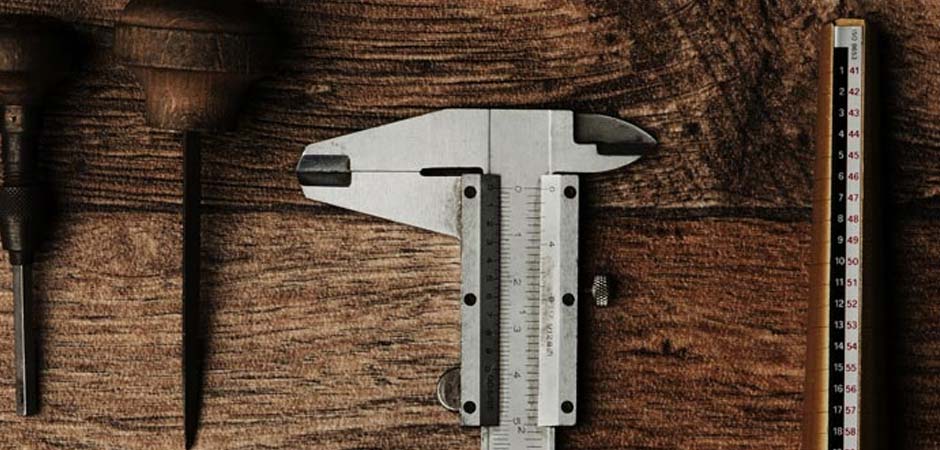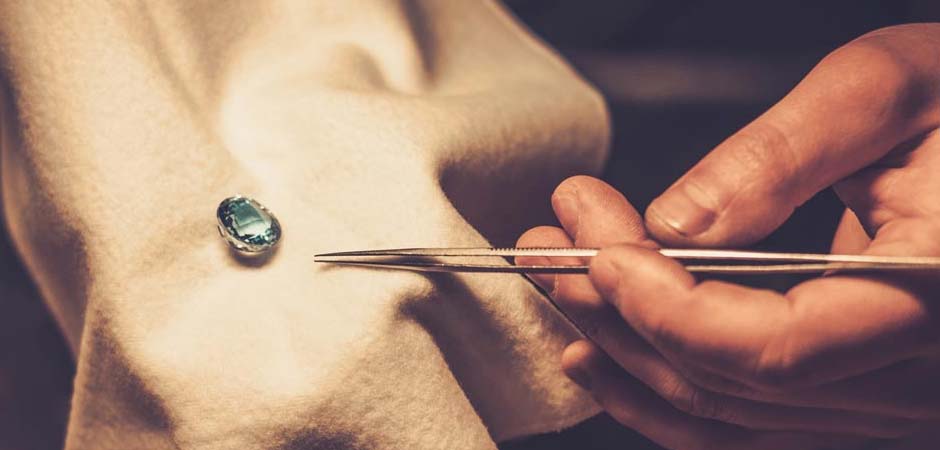At Stones Jewelry, we’ve been serving Wheaton and the surrounding communities for generations. Jewelry repair isn’t just a service to us, it’s a promise. You’re trusting us with objects that hold memories, milestones, and money. That’s why we want you to walk in informed, comfortable, and confident. Below we’ve put together the Top 10 Questions to Ask During the Jewelry Repair Process, written plainly so you’ll know exactly what to ask and what answers you should expect.
Before we begin: we handle most repairs right here in our shop with a full-time jeweler on-site from ring sizing and chain shortening to prong tightening, remounting, and professional cleaning. If a job ever needs a specialist or outsource work, we’ll tell you up front.
1) Will my repair be done in-house or sent out?
Why ask it: whether a repair is done in-house matters for quality control, speed, and security. Work done in your jeweler’s shop lets them inspect progress, correct issues quickly, and keep closer track of your item.
What a good answer sounds like: “We perform X, Y, and Z repairs on-site; for specialized procedures we partner with trusted, certified labs and we’ll tell you which.” Many reputable jewelers emphasize whether their bench is local and staffed by trained technicians and you should ask follow-ups if they say, “sent out.”
What we do: at Stones, a wide range of repairs are completed by our on-site jeweler, so you get direct oversight and faster turnaround when possible.
2) Who will actually do the work? What are their qualifications?
Why ask it: “Who” matters. Bench-certified jewelers, goldsmiths, and experienced stone setters produce better, safer repairs than an untrained technician. Qualifications also matter if your piece is designer, vintage, or has rare stones.
What a good answer sounds like: “Our bench jewelers are X years experienced, certified in stone setting/laser welding, and trained on brand-specific repairs where needed.” If the jeweler can’t answer, ask to speak with the bench technician or request credentials.
What we do: we’re proud of our trained bench work and decades of experience. If your repair requires a specialist with specific brand certification, we’ll explain that clearly and why the specialist is needed.
3) How will you keep my stones (and my identity of stones) safe?
Why ask it: losing or mixing up stones (even small accent stones) is a real worry. You want to know the shop’s chain-of-custody steps: numbering, photos, sealing, or a signed work ticket.
What a good answer sounds like: “We photograph and tag every item, log serial numbers or distinguishing features, secure loose stones in labeled containers, and record all changes in a work order.” If they don’t have a process, consider a second opinion. Several professional repair shops publish their stone-handling protocols because this is a top customer concern.
What we do: we document your piece at drop-off, photograph what we receive, and log all work on your ticket so you always have a record.
4) What exactly will you do and why? (Request a written estimate)
Why ask it: vague promises like “we’ll fix it” aren’t good enough. A clear diagnosis and itemized estimate protect you and the jeweler. Ask for materials, labor, and parts listed separately.
What a good answer sounds like: “We’ll re-tip the prongs, replace worn bezel, re-plate the shank in rhodium, and replace the accent stones with AAA grade match. Estimated cost: $X. Estimated time: Y days.” An itemized estimate reduces surprises and lets you compare quotes. Many jeweler blogs and guidance pages recommend written estimates as standard practice.
What we do: we give a written estimate after inspection and discuss material choices (e.g., 14K vs. 18K, rhodium vs. no rhodium) and the reasons behind our recommendations.
5) How long will the repair take and can you meet my deadline?
Why ask it: timing matters. If you need a ring for an event, tell the jeweler right away. Turnaround depends on the job (simple chain soldering takes minutes to a day; complex remounts or stone ordering may take weeks).
What a good answer sounds like: “Standard repairs take X–Y days; if you need it sooner, we can expedite for Z fee; if work is sent out, add shipping time.” Many jewelers recommend bringing items in well before important dates because repair timelines can vary.
What we do: we provide realistic timeframes and let you know if we can expedite. If a part or a stone must be ordered, we’ll give the updated timeline and keep you informed.
6) What warranty or guarantee do you offer on repairs?
Why ask it: a warranty shows confidence. Typical guarantees cover workmanship for a period (for example, 30–90 days) and some shops offer longer warranties on specific fixes like solder joints or re-tips.
What a good answer sounds like: “We guarantee our workmanship for X days/months; if the repair fails due to workmanship, we fix it at no charge normal wear and tear excluded.” Ask for it in writing. If there’s no warranty, ask why.
What we do: we stand behind our work. If a repair fails because of a shop error, we’ll make it right and we’ll explain what’s covered before you leave your items with us.
7) Will the piece be altered permanently? (Ask about original parts and options)
Why ask it: some repairs change the original design permanently e.g., resizing that removes metal, re-plating that changes finish, or remounting that alters setting style. Know what will be kept, replaced, or changed.
What a good answer sounds like: “We’ll save your original shank and extra stones; resizing removes X mm of metal which we keep (or return to you); remounting is a permanent change, and we’ll keep any original parts unless you want them back.” If sentimental value matters, request all original parts returned.
What we do: we discuss permanently altering repairs and offer to return original parts when feasible. We’ll also provide options like redesign instead of a repair if that better fits your goals.
8) How will you match metals and stones? Will replacements look like the original?
Why ask it: color and finish matter. Replacing a plated white gold with yellow gold or swapping stones with poor matches can change the look and value.
What a good answer sounds like: “We use matching alloys, mill to the correct gauge, and match diamonds or colored stones by color/grading. We’ll show you matching samples before finalizing.” Ask to see the replacement stone or a close sample before it’s set.
What we do: we source quality replacement stones and match metal karat and color, so your piece looks consistent. If an exact match can’t be achieved, we’ll explain alternatives and show you samples.
9) Will the repair affect appraisals, insurance, or resale value?
Why ask it: some repairs (especially improper ones) can lower value or complicate insurance claims. Conversely, professional repairs documented with before/after photos can help with appraisals and claims.
What a good answer sounds like: “We document work, provide receipts and photos you can use for insurance. We can also recommend certified appraisers if you need a new appraisal after restoration.” Many jewelers encourage keeping documentation for insurance and future resale.
What we do: we supply detailed receipts and before/after photos. If you want an updated appraisal after a large restoration, we can point you to trusted appraisers.
10) What are the payment options, and are there additional fees (shipping, insurance, expedite)?
Why ask it: hidden fees are frustrating. Ask about deposits, payment methods, return shipping insurance (if your piece is sent out), and extra costs for rush work.
What a good answer sounds like: “We require a $X deposit for special orders; we accept cash, card, checks; shipping and insurance costs are X when applicable; rush service is an additional fee.” If you’re asked for full payment before you see the finished work, ask why and make sure it’s documented.
What we do: we’re transparent about charges, deposits, and any shipping/insurance fees. We’ll always explain extra charges before proceeding.
Extra tips and questions you might not think to ask
- Can you show me comparable repair examples or references? Seeing before/after pictures or hearing customer recommendations helps.
- Do you offer cleaning and inspection with the repair? Many shops include cleaning and safety checks; it’s worth asking.
- If a piece is vintage or antique, what preservation steps will you take? Vintage repairs require extra care and sometimes specialist conservation.
- If you replace stones, do you guarantee they are conflict-free and ethically sourced? Ask for any provenance information available.
These extra checks are recommended by trusted jewelers and repair shops and help you protect sentimental and monetary value.
How to prepare your jewelry before drop-off
- Clean gently. Remove surface dirt with a soft cloth but do NOT use harsh cleaners or ultrasonic machines on delicate vintage pieces. (If in doubt, leave cleaning to the pros.)
- Gather documentation. Bring receipts, appraisals, or any notes about previous repairs or special characteristics. That background helps us diagnose faster.
- Note deadlines. Tell us if you need the piece by a certain date, we’ll let you know if that’s possible.
- Ask for an inventory and work ticket. A signed ticket with your contact info, the agreed work, and the estimate protects both you and the jeweler.
These common-sense steps speed up the repair process and reduce misunderstandings. We’ll help you with every step when you bring your piece in.
Why Stones Jewelry? Our promise to you
Repairing jewelry well takes experience, careful eyes, and the right tools. Jewelry repair is a technical craft it’s not just soldering or polishing. Proper repairs preserve aesthetics and structural integrity; poor repairs can cause more damage or reduce a piece’s life. That’s why we emphasize trained bench work, clear communication, documentation, and honoring the sentimental value of the pieces we touch. You deserve a repair shop that treats your jewelry like we would our own family heirlooms.
Quick checklist to bring with your jewelry
Before you drop off your item, make sure you have:
- A written or verbal list of visible problems (loose stones, bent prong, broken clasp).
- Any paperwork (receipts, appraisals).
- Your timeline needs and whether you want a rush.
- Contact info and approval preferences (text/email/call) for updates.
This short checklist helps us get straight to work and keeps your expectations aligned with the outcome.
Final thoughts
Asking these Top 10 Questions to Ask During the Jewelry Repair Process gives you clarity, protects your investment, and leads to better results. A good jeweler will welcome these questions they show you care about your piece, and they give the bench the information it needs to do a safer, more lasting job. At Stones, we want every customer to feel informed and confident about turning over a treasured item to us. Transparency, craftsmanship, and respect for your story are how we work.
Contact Stones Jewelry for jewelry and jewelry repair needs and questions
If you’re in Wheaton or nearby and want your jewelry handled with care, please bring it to Stones Jewelry. We offer on-site bench work, clear written estimates, and a history of thoughtful restoration whether it’s a quick solder, a delicate stone reset, or a full remount. Drop by our shop at 107 W Front St., call (630) 668-0163, or visit our website to schedule an inspection. We’ll photograph and document your piece, explain repair options in plain language, give a written estimate, and get your permission before we begin. Let us protect your memories — we treat every piece like family.


